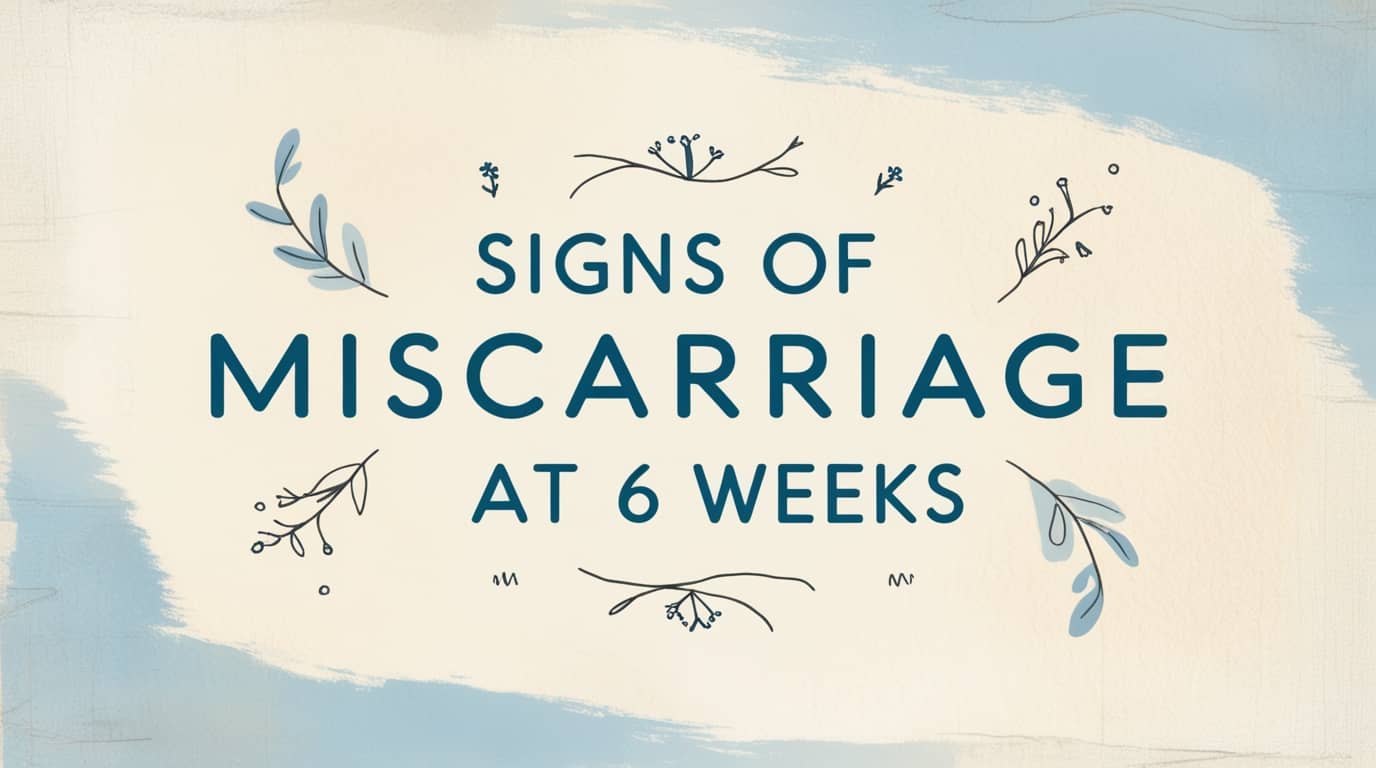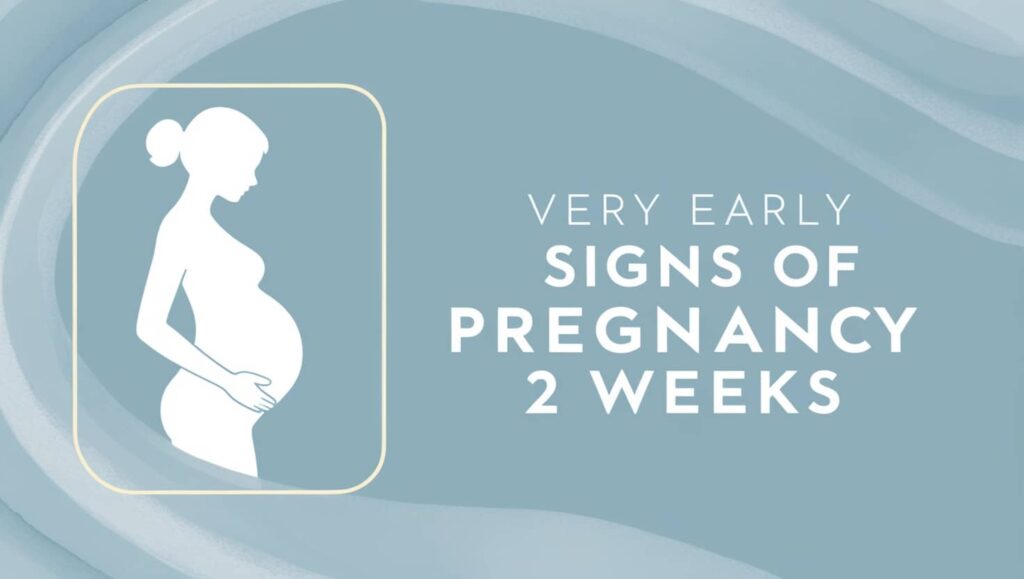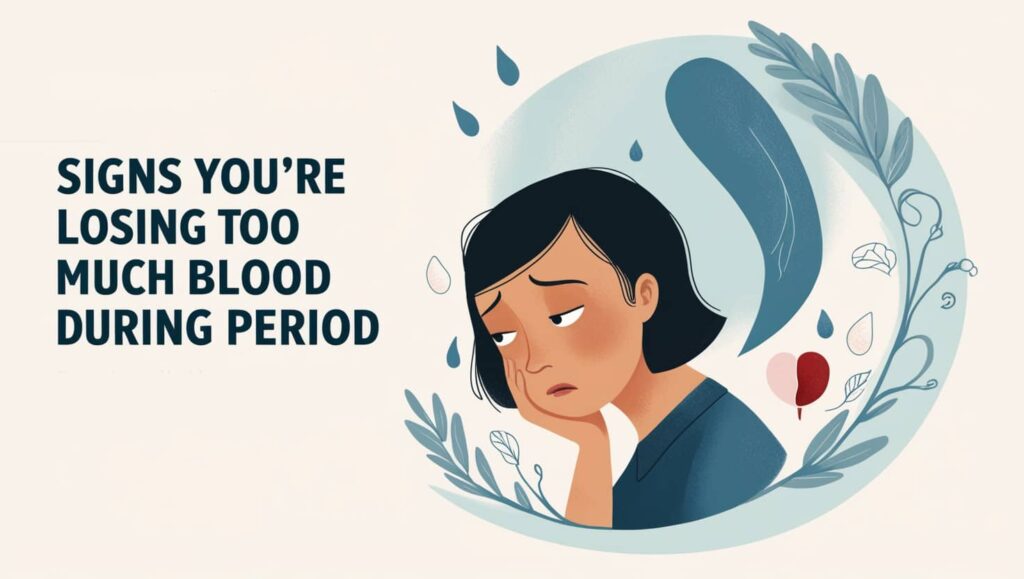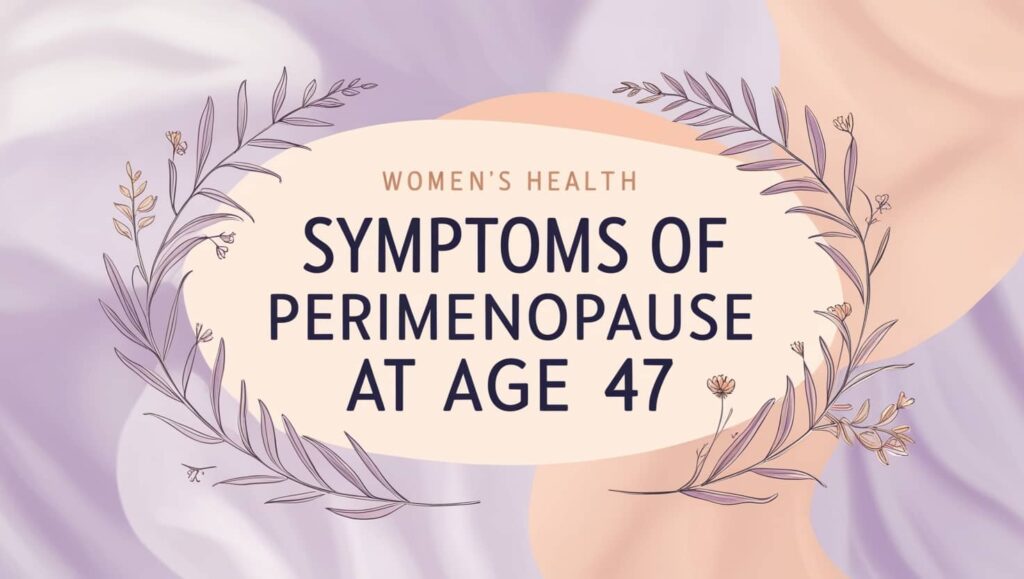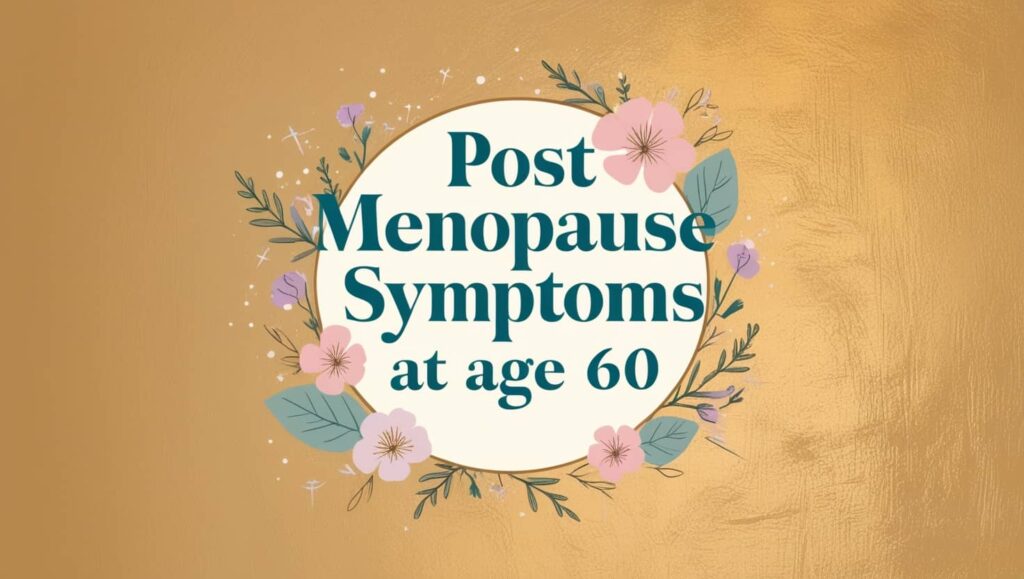A pregnancy loss occurring within the first ten weeks is termed an early miscarriage.
Thank you for reading this post, don't forget to subscribe!Such losses can happen before a woman is aware of her pregnancy.
While occasional miscarriages are not uncommon, recurrent miscarriages (three or more consecutive losses) may require further investigation to identify potential causes.
Pregnancy loss, at any stage, can be emotionally traumatic, and needs psychological and social care.
In the following paragraphs, learn with us about the signs of miscarriage in the sixth week and be more in touch with your body.
Common Symptoms of Early Pregnancy Loss
Bleeding is one of the most common initial signs of miscarriage, and does not necessarily mean loss of the pregnancy.
Other initial signs of miscarriage may also include:
- Brown discharge, which is old blood present in the uterus, comes out of the body.
- Bright blood spots or blood clots.
- Passage of tissue through the vagina.
- Flow of clear or pink liquid.
- Dizziness, lightheadedness, or fainting.
- Initial signs of pregnancy, such as breast tenderness and nausea, fade.
If you are pregnant and feel the symptoms mentioned above, or some of them, you should see your doctor and undergo the necessary tests, such as ultrasound imaging, to ensure your safety and the safety of the pregnancy. (Gynecol, 2021)
Recognizing Spotting vs. Heavy Bleeding
During pregnancy, a woman may experience two types of bleeding: spotting and heavy bleeding.
Each of them has different symptoms that enable you to differentiate between them.
Spotting symptoms:
Spots of red or pink blood usually occur as a result of exertion, such as exercise or after intercourse.
Its quantity is so small that it may not require a pad or tampon.
Severe bleeding:
It is a large amount of more than just spotting of red blood and requires the use of a pad or tampon
It is usually accompanied by pain and cramps.
| Feature | Spotting | Heavy Bleeding |
| Color | Brown, pink, or red | Bright red |
| Amount | Light, may not require a pad | Heavier, may require a pad or tampon |
| Other symptoms | May occur after intercourse or exercise | May be accompanied by cramps or pain |
Cramping and Pain in Early Miscarriage
Cramping and pain are symptoms that indicate an early miscarriage.
Their severity varies from one case to another, as well as according to the stage of miscarriage.
Here are the types of cramps and pain associated with early miscarriage:
Mild cramps: These are somewhat similar to menstrual cramps and can come and go from time to time.
Moderate cramps: They are more severe than the previous ones, and may be accompanied by back pain.
Sharp, stabbing pain: These are less common conditions, but some cases suffer from them.
In all cases, you must consult a doctor to evaluate the condition and take the necessary steps. (Mouri , Hall , & Rupp, 2024)
When to Consult a Healthcare Provider
When any of the following occur, you should consult your medical care provider, especially if you have had a previous miscarriage:
Severe bleeding: This is the release of blood from clean sanitary pads within one hour, or the release of blood accompanied by large blood clots.
Severe abdominal pain: This may indicate an ectopic pregnancy or other serious health problems.
Fever: When your body temperature rises to more than 38 degrees Celsius, this usually indicates that you have a microbial infection that can have a serious impact on your health and the health of the fetus.
Persistent vomiting: A condition known as hyperemesis gravidarum that can cause dehydration if left untreated.
Lack of fetal movement: If you notice that the fetus has decreased movement, you should consult a doctor and conduct appropriate tests.
Excessive fluid leakage: This may indicate premature birth or a rupture of the membranes surrounding the fetus.
Severe headache: It may be one of the signs of preeclampsia, which seriously affects the pregnant woman and the fetus.
Vision changes: Another sign of preeclampsia or other health problems.
Swollen hands and feet: also, a serious sign of preeclampsia.
Shortness of breath: This is a sign that you may be suffering from heart or lung problems.
In particular, if you suffer from any health problem, or have any concerns about your pregnancy, health condition, or fetal health, it is always preferable to consult specialists to ensure your safety and take the necessary measures if necessary.
Emotional Impact of a Miscarriage
When a miscarriage occurs, a woman may suffer from negative emotional effects, especially if it happens repeatedly, or if there have been many previous attempts to become pregnant.
Those around her may also suffer from emotional influences, such as her husband and family.
These effects can appear in the form of emotions such as:
Grief and sadness: This is a natural feeling and an understandable reaction to loss, and a woman must give herself the opportunity to live in this state for a period that does not hinder her from completing her life.
Anger: After a pregnancy loss, a woman may feel angry at her doctor, her husband, or any other thing or person.
Remorse: Women suffer from remorse for things they did or did not do, and they believe that this is the reason for their loss.
Shock: comes after the miscarriage is confirmed.
Anxiety: A woman may have fears about the possibility of having children in the future.
Depression: Sometimes a miscarriage can cause a woman to become depressed, which requires long-term treatment.

How to get emotional support
Therefore, if you have suffered a miscarriage, you should not neglect your feelings and do the following:
- Talk to people you trust about your feelings openly.
- Join women’s support groups that include women who suffer or have suffered from the same problem.
- Take care of yourself, eat a healthy diet, sleep well, and exercise.
- Don’t pretend to be brave and allow sadness to express itself.
- Be kind to yourself, do not rush things, and give yourself a chance to recover physically, psychologically, and emotionally from the loss
- Do not hesitate to seek medical care if feelings of grief and loss cannot be dealt with.
We hope that you have obtained sufficient information about everything related to the signs of miscarriage in the sixth week through the article.
Read Also: Signs You’re Losing Too Much Blood During Period
References
Gynecol, A. J. (2021). Prediction of pregnancy loss by early first trimester ultrasound characteristics. PubMed.
Mouri , M., Hall , H., & Rupp, T. J. (2024). Threatened Miscarriage . PubMed.

